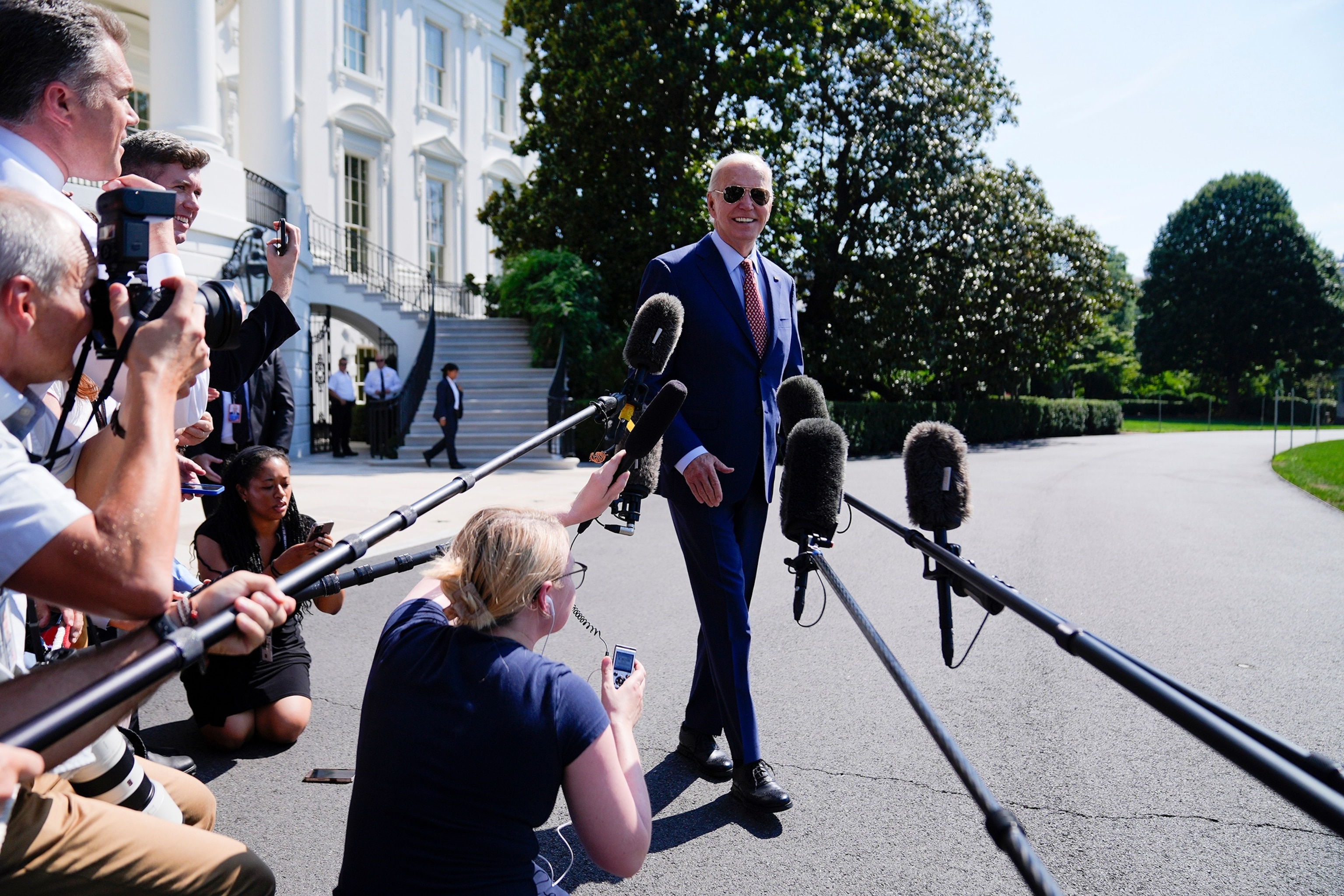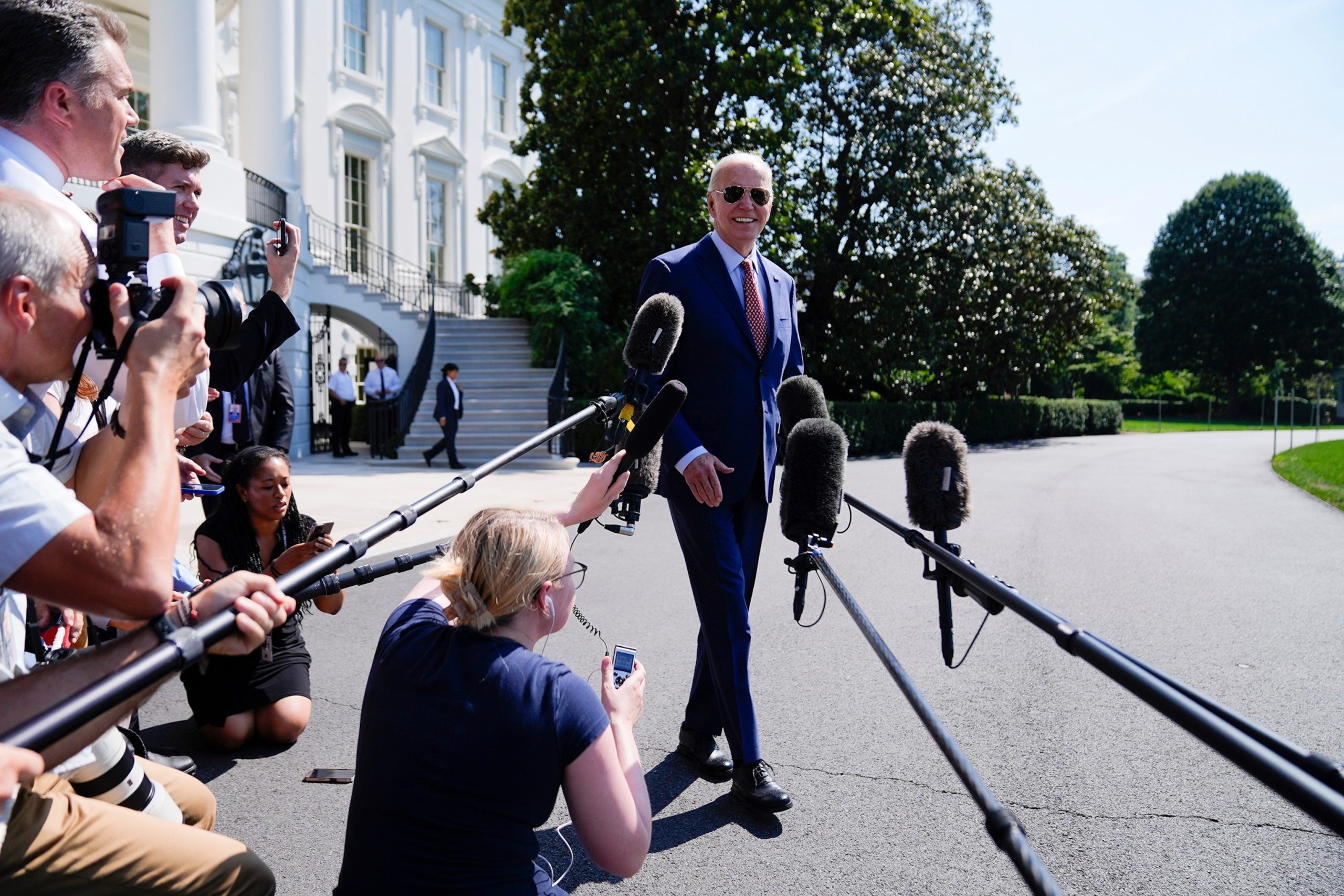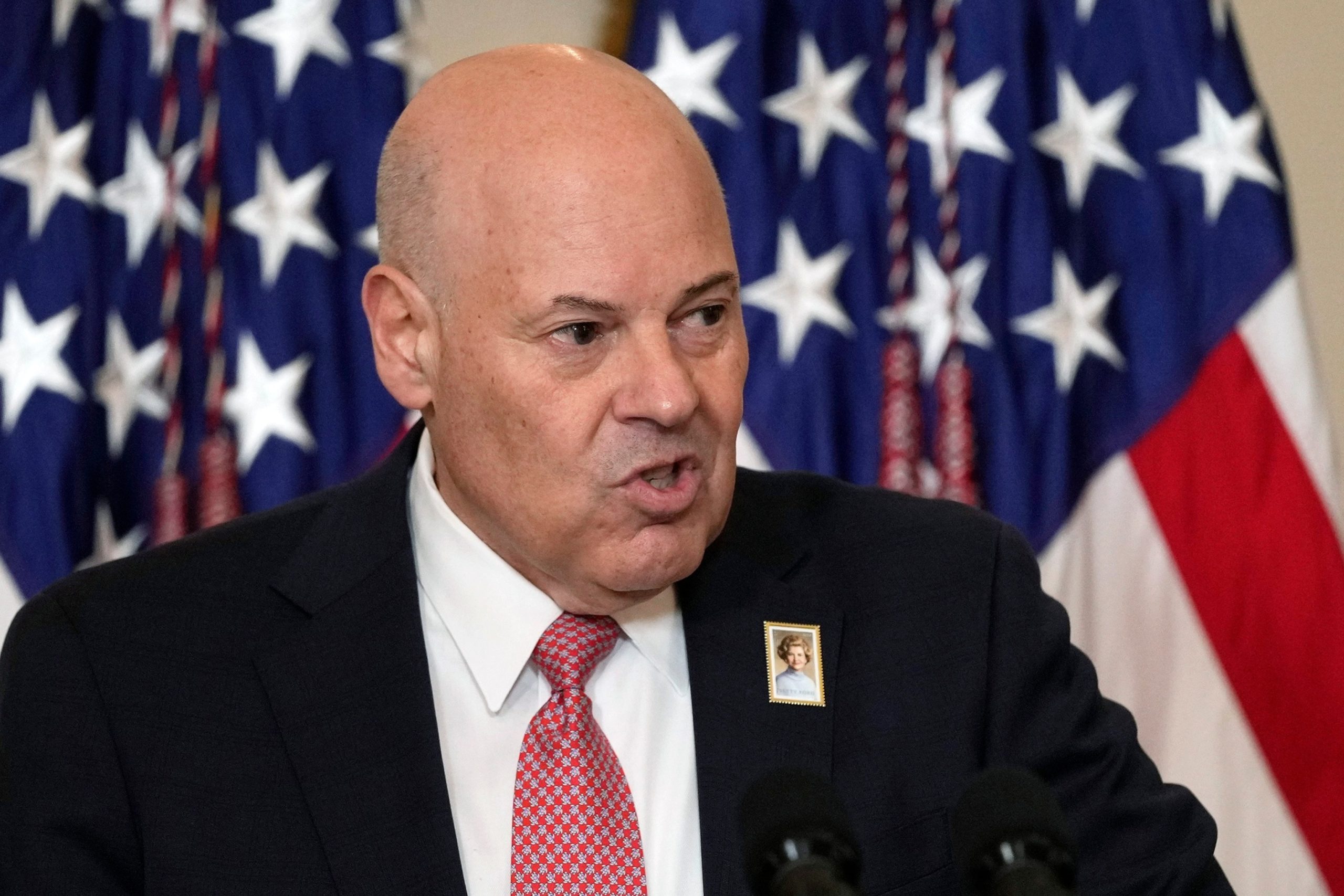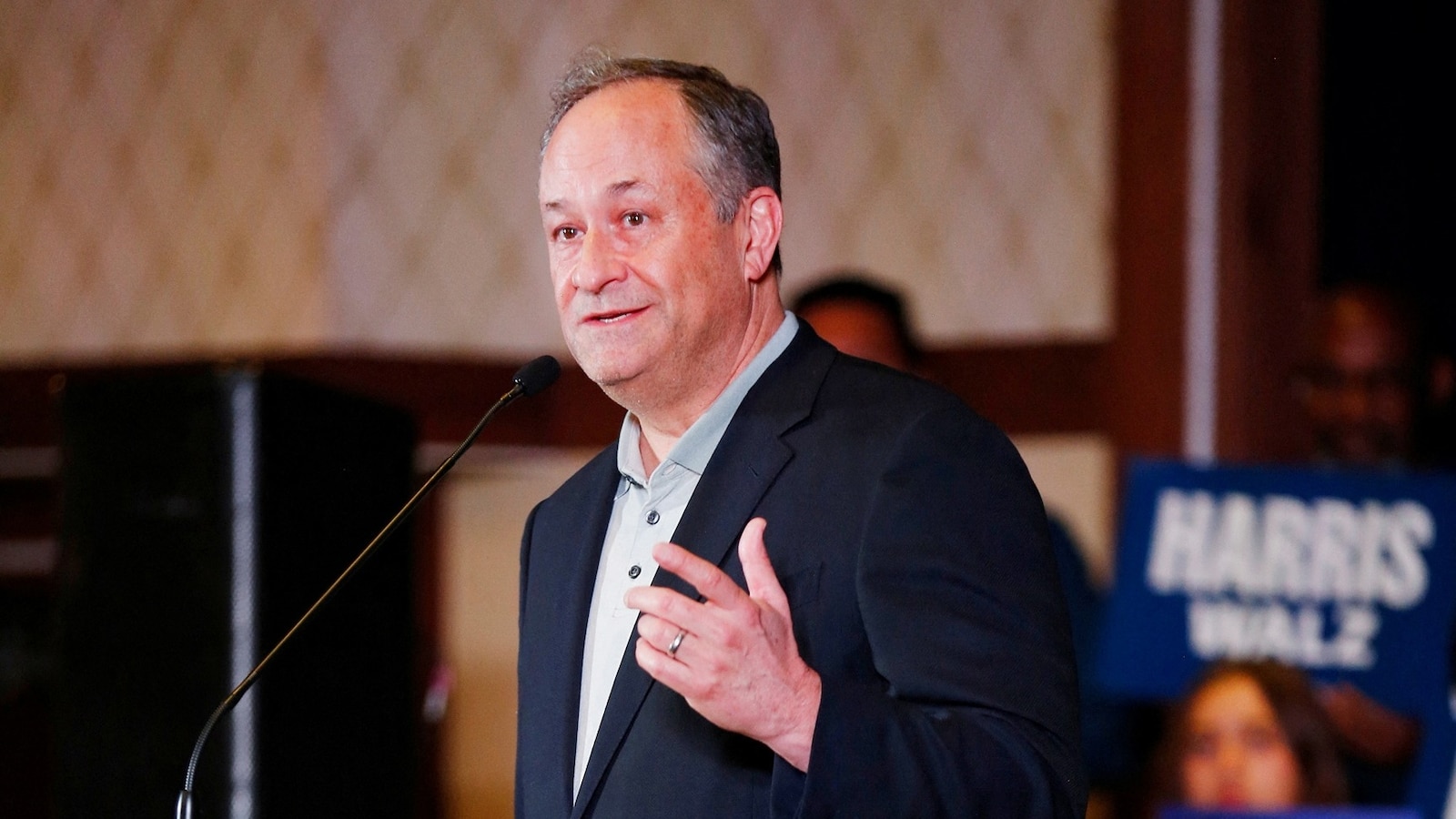In an effort to beef up protections for consumers against corporations, the Biden administration on Monday announced a handful of policies to crack down on “headaches and hassles that waste Americans’ time and money.”
Through the Federal Trade Commission (FTC) and the Federal Communications Commission (FCC), the administration will ask companies to make it as easy to cancel subscriptions and memberships as it is to sign up for them, and through the Consumer Financial Protection Bureau, a new rule will require companies to let customers cut through automated customer service “doom loops” by pressing a single button to reach a real person.
“For a lot of services, it takes one or two clicks on your phone to sign up. It should take one or two clicks on your phone to end the service,” White House Domestic Policy Advisor Neera Tanden said on a call with reporters to discuss the new policies.
Consumers could see the new rule applied to gym memberships or subscriptions with phone and internet companies.
The administration will also call on health insurance companies to allow claims to be submitted online, rather than requiring insured customers to print out and mail forms in for coverage.
“Essentially in all of these practices, the companies are delaying services to you or, really, trying to make it so difficult for you to cancel the service that they get to hold on to your money longer and longer,” Tanden said. “And what that means is, ultimately, consumers, the American public, is losing out.”

President Joe Biden speaks to reporters before boarding Marine One on the South Lawn of the White House, on Aug. 2, 2024, in Washington, D.C., enroute to Wilmington, Del.
Evan Vucci/AP
The new regulations were rolled out Monday but will be on varying timelines, with some taking weeks and others taking months to be implemented, administration officials said.
They target a range of industries and companies at a time when Americans feel strapped by high prices and stubborn inflation — an issue that has weighed on President Joe Biden and now Vice President Kamala Harris’ presidential campaign as voters continue to rank the economy among their top issues.
As part of an agenda centered around “lowering costs,” the administration has tried to improve voter confidence in the economy through consistent but piecemeal efforts to bring down daily costs, from lowering prescription drug prices to canceling student loan debt.
Volatility in the stock market last week after a lower-than-expected jobs report has increased the pressure for Democrats to prove their economic bonafides to voters. Experts urge caution before drawing any major conclusions from the week, remaining divided over whether the U.S. is headed for a downturn or still on a resilient path of growth.
Other efforts by the Biden administration to reduce daily bills and offset higher prices include targeting junk fees tacked onto tickets and hotel costs, requiring airlines to automatically refund passengers for delayed flights, and banning medical debts from credit reports.
The efforts have frequently pitted Biden and Harris against big companies, as they accuse them of “shrinkflation,” or delivering less product for the same price, and keeping their prices high even as inflation falls. The Biden administration has also been heralded by antitrust advocates for reviving enforcement on companies for the first time in a meaningful way in decades — including with lawsuits against companies like Google, Apple and LiveNation.

In this May 20, 2024, file photo, the seals of the Federal Housing Finance Association (FHFA) and the Federal Trade Commission (FTC) are shown at the organizations’ headquarters in Washington, D.C.
Bloomberg via Getty Images, FILE
Tanden insisted that Monday’s efforts were about creating a better functioning market, not targeting any particular company or “shaming corporations writ large.”
“This is a broad initiative in which we are talking about a whole series of practices across multiple industries, and the real focus is ensuring that consumers and their choices are what is driving decision making in the market, not the practices of companies that make it hard for people to switch,” Tanden said.
“When they want to end one subscription, they can shop for another, but it’s their decision,” she said. “That’s what a free market is really about, empowering individuals to make the decisions they want to make without these practices that get in their way.”
Canceling a subscription service can often be a frustrating and time-consuming process. Many consumers have experienced the frustration of trying to cancel a subscription only to be met with confusing terms and conditions, hidden fees, and long wait times on customer service hotlines. However, a newly proposed federal rule aims to make canceling subscriptions as easy as signing up.
The Federal Trade Commission (FTC) recently announced a proposal that would require companies to provide consumers with a simple and easy way to cancel their subscriptions. Under the proposed rule, companies would be required to provide a clear and conspicuous way for consumers to cancel their subscriptions, such as a toll-free number or an online form. Companies would also be prohibited from charging consumers any fees for canceling their subscriptions.
The goal of the proposed rule is to protect consumers from deceptive and unfair practices when it comes to canceling subscriptions. Many consumers have reported being charged for subscriptions even after they have tried to cancel them, or being unable to cancel their subscriptions at all. The FTC hopes that by implementing this rule, consumers will have more control over their subscriptions and will be able to easily cancel them if they no longer wish to continue.
In addition to providing a clear and easy way to cancel subscriptions, the proposed rule would also require companies to provide consumers with a confirmation of their cancellation. This confirmation would serve as proof that the consumer has successfully canceled their subscription and would help prevent any future charges from being applied.
The proposed rule has received widespread support from consumer advocacy groups, who believe that it will help protect consumers from deceptive practices in the subscription industry. Many consumer advocates have argued that companies often make it intentionally difficult for consumers to cancel their subscriptions in order to continue charging them for services they no longer want or need.
While the proposed rule is still in the early stages of development, it has the potential to greatly benefit consumers who are looking to cancel their subscriptions. By providing a clear and easy way to cancel subscriptions, the rule aims to give consumers more control over their finances and prevent them from being taken advantage of by unscrupulous companies.
Overall, the newly proposed federal rule aiming to make canceling subscriptions as easy as signing up is a positive step towards protecting consumers and ensuring that they have the ability to manage their subscriptions in a fair and transparent manner. It remains to be seen how the rule will be implemented and enforced, but it is clear that it has the potential to make a significant impact on the subscription industry.



